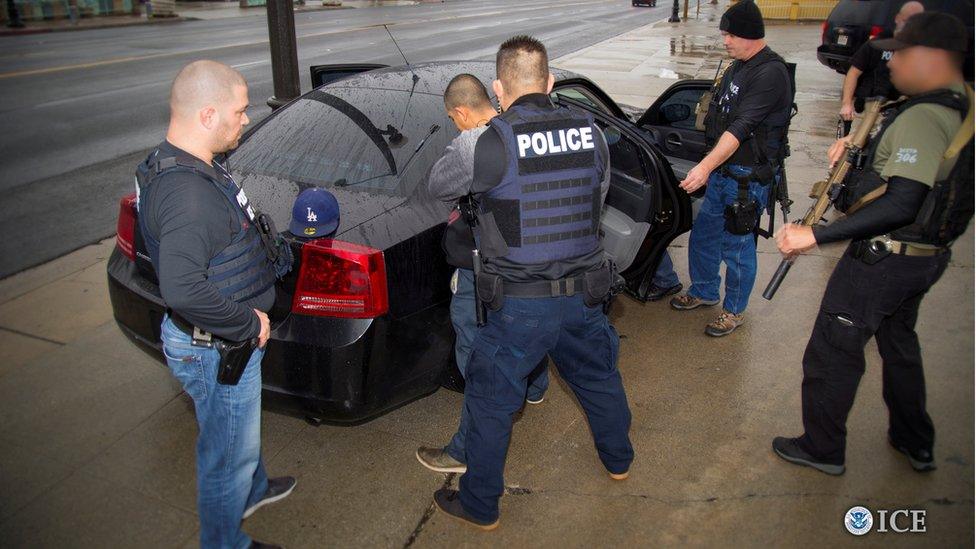Immigration arrests surge 40% under Trump
- Published

US immigration agents detaining a suspect in Los Angeles this month
US arrests of suspected illegal immigrants rose by 38% in the first 100 days of Donald Trump's presidency, according to government data.
Detentions by the Immigration and Customs Enforcement (ICE) agency jumped to 41,318 between 22 January 2017 and the end of April.
That was up from 30,028 arrests in about the same period last year.
The dragnet follows presidential orders widening the scope of who can be targeted for immigration violations.
Almost two-thirds of those arrested this year had criminal convictions, said ICE.
But more than half the increase in arrests was of immigrants who were simply in the US without permission.
The church defying Trump by hiding immigrants facing deportation
President Trump has stepped up immigration enforcement to target such undocumented immigrants.
Acting director of ICE Thomas Homan told reporters on Wednesday that immigrants who posed a threat to national security or had criminal records were still a priority for his agency.
But he added: "There is no category of aliens off the table."
ICE would continue to target people who have been issued a final order of removal by an immigration judge, even if they had not committed another crime, he vowed.
Where do America's undocumented immigrants live?
"Those that enter the country illegally, they do violate the law, that is a criminal act," acting director of ICE Thomas Homan said.
"When a federal judge makes a decision and issues an order that order needs to mean something," Mr Homan said.
President Barack Obama was also criticised for deporting a large number of immigrants, but most of them were recent illegal border crossers.
President Trump's signature campaign pledge to build an expanded wall on the US-Mexico border is in limbo after Congress denied funding for it in a recent budget deal.
But his tough rhetoric on border security appears to be having an impact on immigration enforcement.
The number of people caught crossing the border with Mexico is down significantly since the beginning of the year, according US Customs and Border Protection data.
Immigration advocates have raised concerns about the stepped up enforcement in the interior of the country.

More on Trump and the border
'Build that wall' says border resident
US immigration raids leave many 'afraid to open the door'